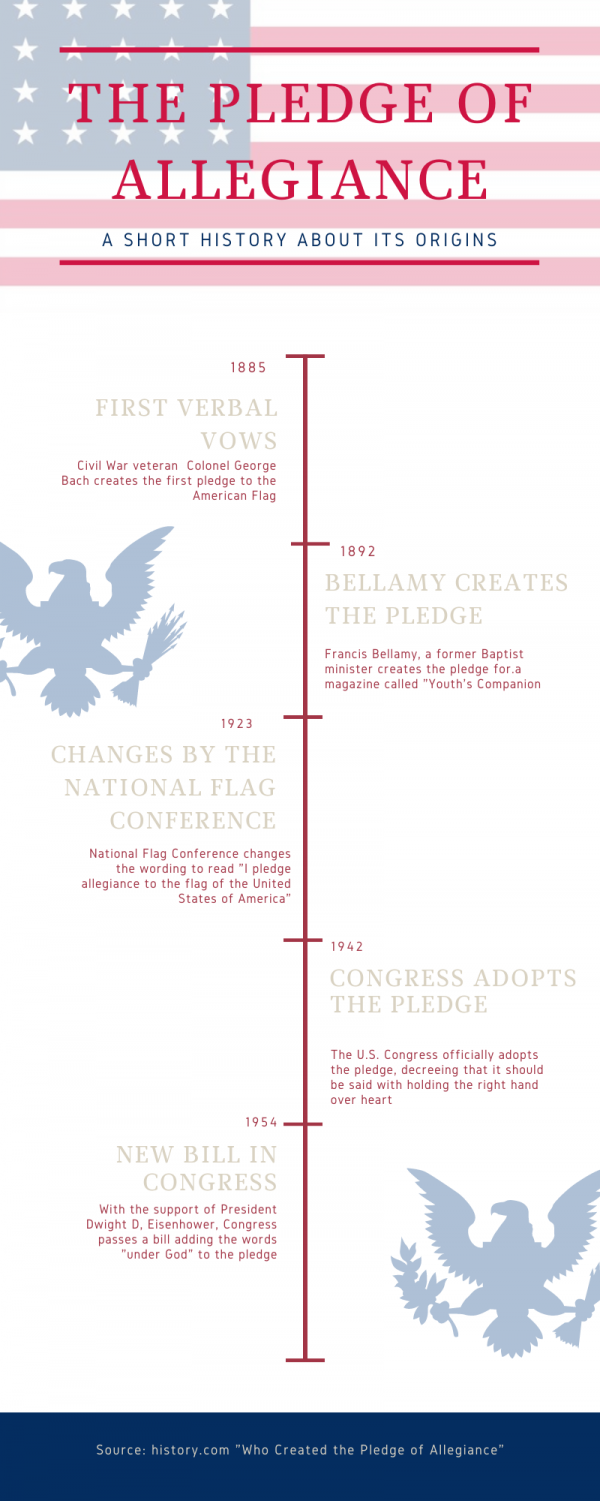The court decides: West Virginia State Board of Education v. Barnette
After many cases regarding the Pledge of Allegiance, the U.S. Supreme Court made its final decision in 1943, protecting students’ First Amendment rights in West Virginia State Board of Education v. Barnette. This monumental decision ensured protections for groups such as atheists and Jehovah’s Witnesses.
In 1942, the West Virginia State Board of Education enacted an unjust rule making the Pledge of Allegiance a mandatory activity in all public schools. Walter Barnette, a Jehovah’s Witness, sued in federal court arguing that his children’s First Amendment rights were violated by the mandatory flag salute.

A previous case, Minersville School District v. Gobitis (1940) had allowed West Virginia to make the Pledge of Allegiance mandatory. In this case, the court said the pledge emphasized national unity and therefore, the school district’s interest in creating national unity allowed them to require students to salute the flag.
However, three years later, West Virginia State Board of Education v. Barnette overruled the previous decision, finding a mandatory pledge unconstitutional.
Ultimately, the court decided that enforcing the Pledge of Allegiance violates the First Amendment. People cannot be forced to recite something they do not believe in as it violates their basic human rights. The First Amendment protects the right to an opinion and it should protect our opinions even if some might consider them ‘anti-patriotic.’ In addition, the phrase “under God” brings religion into the debate.
The First Amendment protects religious freedoms, including the freedoms of atheists. Requiring atheists to say “under God,” forces them to go against their beliefs and therefore violates their right to religious freedom.
The phrase also directly violates the Establishment Clause of the First Amendment, which states, “Congress shall make no law respecting an establishment of religion.” While the Pledge of Allegiance is not a law, it is a document backed by Congress and therefore should not include any reference to religion.
Many argue that the phrasing of the pledge is not religious because it is a “ceremonial, patriotic exercise.” However, if this is the case, the words “under God” have no value and should be removed.
Supporters of the pledge argue that the pledge promotes “good citizenship” and national pride. Due to the First Amendment, people should have the right to protest the pledge if they do not believe in it. This concept was brought into the spotlight in 2016 when NFL player Colin Kapernick knelt during a performance of the national anthem.
While many people criticized Kapernick’s actions, his decision was still protected by the First Amendment.
Despite West Virginia State Board of Education v. Barnette, California law requires an “appropriate patriotic exercise” to be conducted daily in public elementary and secondary schools.
According to the SFChronicle, this requirement is vague and not heavily enforced. Whether such a requirement should exist is another question, but thanks to West Virginia State Board of Education v. Barnette, students cannot be forced or coerced to recite the Pledge of Allegiance if they do not believe in it.











